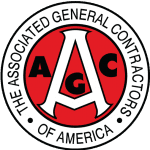When you’re preparing to buy your next bucket truck, take a look around and see what your competitors are using. It’s hard to determine the best truck in the industry, but you will see what is standard and most-used, and that should help you to choose according to your specific requirements.
Your truck will say a lot about you and the work you do. It’s a business tool, and a well-kept, presentable vehicle will be like a business card as you travel around your area. Be smart, and choose the vehicle you really need, and no less.
The most important factor is, of course, whether the truck is outfitted to perform the work you require. Is it insulated for high voltage work? How high will the bucket extend? Do you need a tree-truck, or do you need a vehicle that is built to handle cable and cable lines? These trucks use very specific equipment, and have to be tested in order to keep the operator safe at all times. Does the truck have a manual transmission? Many drivers are not trained to operate a vehicle with a stick shift, so keep that in mind, as well.
Another vital consideration will be the size. Does your business require a heavy-duty work truck, or will a light-duty vehicle be right? What do your competitors drive? What will your cargo weight be? Modern trucks are classified by Gross Vehicle Weight Rating, and this is the max rate that a truck can carry. There are 8 GVWR classes here in the U.S.:
CLASS 1: 6,000 lbs.
CLASS 2: 10,000 lbs.
CLASS 3: 14,000 lbs.
CLASS 4: 16,000 lbs.
CLASS 5: 19,500 lbs.
CLASS 6: 26,000 lbs.
CLASS 7: 33,000 lbs.
CLASS 8: Over 33,000 lbs.
A consideration concerning the size of vehicle you purchase is going to be whether it will require a driver that holds a CDL; the determining factor here will be whether the truck weighs over 26,000 lbs. We currently have several customers that are choosing to trade in their larger trucks because drivers today are finding it more difficult to maintain the proper licensure.
The next question to ask yourself is whether you should buy or lease a new or used truck. There are pros and cons for each choice, but many times, the budget concern is the most influential piece. Many business owners simply cannot afford a new truck, or just aren’t willing to spend upwards of $100,000 to obtain one. Consider, though, that while a used truck may cost you less, the maintenance costs in the future will be higher. If the former owner did a great job of taking care of the vehicle, then it may last you many years, but if not? You also will have great financing options available when buying a pre-owned truck.
A new truck will have a full warranty, along with brand new equipment. Modern engines are far more efficient when it comes to fuel usage, too. Regular, routine maintenance is all you will need to do. Do keep in mind, however, that your brand new truck loses almost a quarter of its value as soon as you leave the lot, so many business owners opt for a vehicle that is a year or two old to avoid this depreciation. The cost of a new small bucket truck will be approximately $150,000, while the larger models can easily exceed $300,000.
Leasing your vehicle can be a good choice to avoid those large price-tags, especially if you will only need the truck for a particular project. You can tie the equipment to the job by leasing a piece of equipment that is perfectly suited for that project, avoiding full ownership of a vehicle that was only an 80% solution.
Here at Utility Equipment Services, we have all your needs covered. Give us a call when you are in the market for a utility truck, as well as when you have service and repair needs, and even for equipment rental. We have it all!




